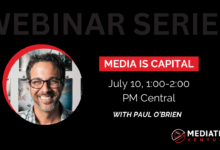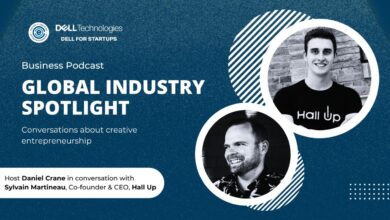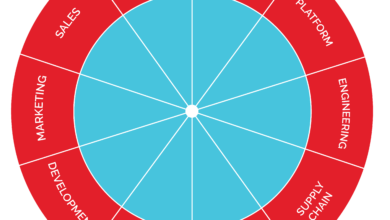The Books Founders Should Read

Over the years, I’ve been frequently asked what books I’d recommend about startups, and despite both MediaTech’s close association with authors and written media, and the fact that I’ve offered a perspective or two about books, I realized I’d never written out my recommendations.
I decided to finally offer a take, because of late, I’m seeing the same book recommendations (popular startup books all) with insufficient context or explanation to appreciate why someone is recommending *those* books. And while a list is nice, the reason behind the that collection of books coming together, has merit, unless it is just a list of books.
- Start with Why
- Innovation and Entrepreneurship
- Zero to One
- Venture Deals
- Mindset
- Traction
- Rocket Fuel
Why those and that order? Not more “startup-y” books?
Too many startup books are tactics, advice, and anecdotes, helping people feel like they have a good direction to go, or affirming that what they’re thinking, or hoping, is right. Of course, all business books are advice and anecdotes, please don’t infer from my judgement as such, that some books are only that, nor that that’s bad; what I want to make sure everyone appreciates is how advice and confirmation bias easily mislead and can certainly be wrong – the fact that something is published isn’t certainty. History is littered with proof that tactical advice can mislead, and is likely wrong; after all, if most startups still fail, despite the books, obviously the book can’t be written that gets it right.
Start with Why – Simon Sinek
Most founders fail to ever capably understand and explain WHY. They might be able to explain why in the sense that there is a problem or why something should be done about it, but they get fixated on customer validation, revenue as traction, and startup buzzwords like MVP, without ever understanding WHY partners, investors, and competitors, might care.
Without why, you’re screwed. Every single time. Founders give up because their idea or their plan fails… if you have a Mission and you validate a vision rather than a solution, the “why,” you can’t really fail unless you quit (you just keep trying until you figure out what works). Always, in how you plan, how you prioritize, how you talk to others, and in what you invest in building, start with why.
No, this isn’t a “startup book” nor written for founders; if you want to appreciate why most founders fail, it’s because they don’t start with why in everything they do – tactics, funding, and team will not save you from being wrong about why.
Innovation and Entrepreneurship – Peter Drucker
Next, appreciate that almost nothing is new under the sun.
Drucker’s book, Innovation and Entrepreneurship, from 50 years ago, best illuminates the fundamentals of entrepreneurship, and helps people appreciate how/why businesses ultimately succeed as they have always.
No new tricks or ideas make a difference, human history has centuries of trialing the best way to start something new; learn from that, it works the way it works for reasons time tested.

Zero to One – Peter Thiel with Blake Masters
With a solid basis from a market driven point of view, let’s prioritize the critical impact of innovation. If you don’t get started with the right priorities, basics, and some demand, you’ll be mired in distractions, bad advice, and wasted efforts.
Thiel begins with a controversial point of view that we live in an age of stagnation rather than innovation; that, even if you can give me the examples of shiny mobile devices, electric cars, and decentralized computing, we’re not innovating like we have in the past. The internet boomed with computers, and there is no reason that is limited to Silicon Valley. I think now, more than when written, we’re seeing Thiel’s point come true as the world catches up and catches on to the innovation possible.
Progress can be achieved in any industry or area of business. It comes from the most important skill that every leader must master: learning to think for yourself.
Doing what someone else already knows how to do takes the world from 1 to n, adding more of something familiar. But when you do something new, you go from 0 to 1.
Now, off to the right start? Take a moment and think with the end in mind (they teach this to elementary school kids now, and in 7 Habits of Highly Effective People). Start with the End in Mind. How?
Venture Deals – Brad Feld and Jason Mendelson
Make sure you know how *that* outcome looks like and what it takes. We explore this now in our list, not so that you DO raise money nor even because you MUST raise money… but because you should know what it takes so you can make decisions appropriate to accomplishing it OR make an informed decision that you don’t want to.
If don’t design for funding, you make it insanely difficult to raise – if you want it, learn how it works. If you don’t think you want it, or are unsure, make sure you really know the implications of neglecting it in your vision.
Mindset: The New Psychology of Success – Carol Dweck
The bottom line in my point there, is that people make a BAD decision of not wanting VC because it’s bad or they don’t want to give up control of their company. Some b.s. like that.
Those are poorly informed, emotional decisions. IF you really want your mission to have hope of being accomplished, it comes down to Mindset, Carol Dweck’s psychology of success (passion and purpose, not preferences just one of the ways I put that). You do what it takes to accomplish the goal, not merely get started trying.
I’m a geek about how the idea of books help us learn so many other things about entrepreneurship. Here are some other looks at the library that you might enjoy:
- From Fleming to Fukunaga, the bond of Books to Films
- How to Explain SEO to the Illiterate – the Library Analogy
- Publishing Jobs: Or How I Learned to Stop Worrying & Love the Gig Economy
- Why do we say Content is King?
Technology Changing Books
People with a fixed mindset—those who believe that abilities are fixed—are less likely to flourish than those with a growth mindset—those who believe that abilities can be developed.
Traction – Gino Wickman
Start and End in mind, right mindset and priorities in place… now, get traction.
Traction is NOT customers. Traction is audience, demand, competitive advantage, team, attention, etc. There are so many forms of traction that show that you CAN, people agree, and that it will work. Don’t get mired in thinking customers prove anything, because they usually only prove that you can sell something, and they certainly don’t prove that a competitor won’t take you out.
Wickman explores six key components of business and offers a model and framework for your company that gives the team more focus, enabling growth, and helping keep job satisfaction high.
Rocket Fuel – Gino Wickman & Mark C Winters
Finally, Rocket Fuel. And yes, that means Wickman is on my list twice. Success in a venture NEVER happens as a team of one. It practically never happens with one founder. This is why 2, at least, are clearly correlated with what works more often than otherwise.
Why this now, at the end, and not before? Because knowing what’s involved in traction, fund raising, innovation, and entrepreneurship, and knowing yourself, your mission, purpose, and why, is a pre-requisite to finding the people with whom you can give your venture rocket fuel. You’re looking for that partner who completements you in sharing a vision and intention to get it done.
Let me also leave you with an ongoing I search I have; my posts on social media have proven futile.
There have been a few explorations of how Marketing has changed, and not for the better.
- We Might Need To Hunt For The Unicorn CMO
- The End of Marketing as We Know It
- The Sad Demise of the Chief Marketing Officer
Begging this question, who is an author that you would consider a world-class contemporary in Marketing, capable of also covering the internet in depth? We’ve been on LinkedIn exploring some ideas; pop over there and join us!







Paul O’Brien Love it. Thank you for taking the time to share this!
Matt Cenca Zach Hooks
Paul O’Brien Great list of books. Since you have Traction up there you might want to consider adding its companion book “Get A Grip” as well. It’s a business fable designed to teach the reader the lessons Traction offers. Highly recommended read to go along with Gino’s other work.
I may get some flack for this but here’s how I feel about founders and books..
I’m a supporter of actually just starting as the most important step and reaching out to other founders for advice frequently vs reading the post-success findings of unicorns founders…. There is no single playbook for a startup and so hustle to me is the number one trait.
Thoughts?
Oh, you get ZERO slack from me Jani Tuomi.
“Reaching out to other founders for advice frequently”
I built the [Startups space on Quora](https://startups1.quora.com/), to do just that, and have written around 6000 answers about VC, entrepreneurship, and marketing, to support those founders who *do* just get out there and seek the guidance
I set up my Office Hours to prioritize anyone who want to chat publicly: reach out to me on Twitter to talk and we’ll do it live, for everyone’s benefit, there.
And I’ve tried to push more of our fellow Texas founders to speak up and seek advice, so you’ll find me on Texas Startups, constantly: [https://www.facebook.com/groups/startups.texas/](https://www.facebook.com/groups/startups.texas/)
All that said, I’ve learned that some people just aren’t wired that way and won’t do it (no matter how much we tell founders in our incubators to get online and post); I’m still asked once a day for books to read, so… here we are ?
Usually my reply is, I don’t read books, I don’t have time for them and I just dig up the answers I need on Google or Quora
The Lean Startup – Absolutely an essential read. MY biggest take away–no, not the terms MVP or Pivot– Get your idea ‘out of the building’ and go talk to 100 would be clients. Stealth-mode is a myth. A start up’s greatest competition is obscurity, not the other 5 groups in their garages’ who have your same idea.
You might really enjoy my thought last week in this regard, that “MVP” is too greatly celebrated, because without the media to learn from and emerge from that obscurity, nothing the product does matters – [https://mediatech.ventures/minimum-viable-media-is-a-better-start-than-minimum-viable-product/](https://mediatech.ventures/minimum-viable-media-is-a-better-start-than-minimum-viable-product/)
I did read that. 100% agree. Enjoying the quality of your content. Good work, Paul! Thanks.
Loved The Lean Startup as well!
Since I started adventuring myself in the start-ups and scaleups world, one thing I have noticed is that few books ( and research) speak about methods, and the rest is cool to read but I didn’t feel that entrepreneurs could properly benefit from other successful ventures for a simple reason: everyone has his/her own journey that happens in different periods where both technology and external events can completely change the scenarios described in the “successful ventures”. Thank you to ( finally 🙂 ) confirming my original feelings Paul.
Right? I love the experiences, the stories, the advice, and the thing I did, kind of read, but it’s in the intention, hardship, and process, that minds aren’t just informed but transformed.
Too much advice in general, I find, not through books but articles and office hours/mentors, is personal experience telling people what to do.
We need the models, the methods, the frameworks… teach people HOW and WHY now WHAT.
It is like kicking down an open door Paul “models, the methods, the frameworks”…
Great list of books and article, Paul! It’s like a mini master class. I think I will reread them again as a batch to see if any additional epiphanies occur. 🙂
Ah please do! In fact, there’s a neat idea there .. what about a podcast book club. Talk through the chapters as we go, guests throughout for perspective. Each year (or season) is a series of books with an overarching theme…
This is such a great list, Paul! I just ordered the only one from this list that I didn’t have. Can’t wait to read it. Thanks for sharing!
THanks Paul!
Great post Paul! Thank you my friend.
Love Simon’s “Start with Why”! I used to have new clients view his YouTube videos before we started branding engagements. Love Peter Drucker too! I frequently use quotes from both of them in presentations.
OOOH, I’m adding to my Goodreads, pal! Thank you!!
Thanks Paul! – MCW
EOS Worldwide
Paul O’Brien Great list, thanks… as companies move from pure start up to their “adolescent and teen years”, I also recommend “Small Giants” by Bo Burlingham which gives business owners the approval to stay small and niche!
Ooo that’s a new one (to me), thank you!
And you sparked a thought that I should write these up as a perspective on books for parents and teens. Cheers!
These are fantastic books. No Grit?
Lydia Musher damn you’re right, that’s a good one. Also regretting that I missed Blue Ocean
Have more great suggestions coming in; we’ll get them all on the article
Great list, but… No Steve Blank, The Four Steps to the Epiphany?
Scott Poniewaz It’s always taken me 5 steps to get there…
Paul O’Brien you’re not following directions closely enough
Principles by Ray Dalio
Best one I’ve read
Any list without the Lean Startup by Eric Ries is just not well informed. Why Startups Fail by Thomas Eisenmann and Super Founders by Ali Tamaseb are new and important pattern-based works that dispel tons of media myths. Or well read. Books can address specific issues founders face but successful entrepreneurs move first , diagnose/seek help then iterate. Starting with a book suggests a passive student mindset.
Well, cheers, certainly a provocative way to lead a comment ?
I could argue, running incubators and working with thousands of startups every year, that it’s Venture Deals too infrequently encouraged. I’m not a detractor of Lean by any stretch and yet, Horowitz, Bob Emiliani, and Jitha Thatharchari have all explored the counter-point, rather well. My goal wasn’t to reinforce the oft-cited popular books but rather, weave a narrative by way of a string of books; and Lean Startup would take us down one point of view in particular, requiring I also make the other case.
I could no more claim to be smarter than Eric than I might claim of Ben Horowitz.
“The Lean movement started during a nuclear winter for venture capital. When capital is scarce, you have no choice but to go Lean. When capital is not scarce, it’s worth considering whether other forms of leverage can help you win the market faster.”
– Thatharchari
Great new suggestions! Added to my list James, thank you!
And ultimately yes, as Jani Tuomi and I fleshed out in the comments, we’re in vehement agreement that the book approach might indicate the wrong mindset and as successful founders seek advice and answers, execute, and pivot, in the time that others are still reading.
Traction by Gabriel Weinberg is a better recommendation (the blue traction book, not the black one):
https://www.amazon.com/Traction-Startup-Achieve-Explosive-Customer/dp/1591848369/
Also, Oversubscribed by Mike Wilner before Venture Deals: https://www.amazon.com/Oversubscribed-Founders-Guide-Seed-Fundraising-ebook/dp/B07JFS4BY7/
Add Rework and it’s a perfect list
Innovation and Entrepreneurship was the best. After I read that, I read most of the rest of Drucker (read in mid 80’s). Foundational IMO. But I’m “old.”
Also think Lean Startup by Eric Ries is a classic, Peter Drucker’s Managing for Results and the Effective Executive are both great reads (decades before the 80/20 Principle by Richard Koch). I’ve always enjoyed Blue Ocean Strategy, as well as Michael Porter’s work (Joan Magretta has a great summary called Understanding Michael Porter)… ok and the Innovator’s Dilemma by Clayton Christensen – all classic texts about trade offs. And finally, Building a Story Brand by Donald Miller is a book I recommend to all founders trying to tell their narrative.
Just ordered all the books I’m missing
This is a great, balanced list with good perspectives. Personally, I would add How to Win Friends by Dale Carnegie and The Accidental Creative by Todd Henry.
I also 100% agree with the reasoning behind this list. Many founders (arguably most first-time founders) are hyper-focused on WHAT they are building (technical) and HOW to move forward (tactical). They pay little to no mind to WHY they are building (motivation) and WHO they want to be in the process (character/values/priorities). The issue here lies in the fact that the WHAT and HOW will always change as you go. Always. It’s the nature of startups. And if you don’t know the WHY and WHO pieces, you’ll lose yourself along the way. You’ll burn out, make shortsighted decisions, and ultimately fail to inspire the people who can bring the vision into reality.
Thanks for the great conversation starters as always, Paul!
Allen Stone The Accidental Creative…
Pure gold! Thanks Paul. Just bought the few I haven’t read
That is a bad a$$ list, Paul. I also liked Play Bigger by Ramadan et al. for thinking about (and creating) your market and cutting through the noise.
Love it. Another new one for the library. Thanks Doug Bain
Growing up in a middle class working household, divorced single mom, abusive step father, blah blah…let’s just say I grew up in a world of adversity laying a foundation of weak beliefs about myself and my abilities. I was 29 when I learned the power of investing in myself to grow and learn, adapt and overcome. I hated reading and now I study as if my life depends on it. I adopted a mindset 20 years ago that if I wait for someone, I’ll be waiting a long time. If I take ownership and action, I’ll grow to become that which I wish to achieve. Long patience, long hours, hard work, dedication, failures and rebounds have defined my professional career to change the narrative in my family legacy. Books are the key to unlocking centuries of wisdom from those brave souls who traveled before us leaving clues. Books are the one of the breadcrumb maps to find our way. Starting anything takes courage of that first step not knowing what the second step holds.
Who Not How by Dan Sullivan is a good one for visionaries / founders as well.
I also really gained a lot out of The hard thing about hard things. By Ben Horowitz
Yep, huge fan of the way Ben thinks. The Fat Startup frames much of my worldview arriving In Austin https://a16z.com/2010/03/17/the-case-for-the-fat-startup/
Great list and share, Paul. As an EOS Worldwide implementer here in Austin, I could not recommend Traction by Gino Wickman more highly for any founder. Regardless of where you are in the business journey, this book gives you a foundation for vision, traction and healthy: three keys to running a great company!
Paul O’Brien I just checked my library – I actually have read and can locate each one of these. I am actually going to do a re-read in this order as a perspective refresher…introspection and retrospection are powerful tools. Thanks for the idea!!
Art of the Start by Guy Kawasaki is an excellent starter
Oh duh!! Absolutely. Besides his 10 slides are a fundamental model for introducing the pitch
Great list of books, Paul. I’ve recommended Simon Sinek countless times to friends and colleagues for his clarity and understanding of how people make decisions.
The most clear and under-appreciated in education and most of business and tech, point, “yeah, but why?”
Great list and order. Entrepreneurial Mindset by Ian MacMillan is another time-tested book that I recommend to founders. I am also a big believer of mixing in leadership books as well, because ultimately successful founders also need to lead effectively. For that, I like to recommend Leadership Strategy and Tactics by Jocko Willink.
Entrepreneurial Mindset is a big one that needs to get on my list, I’m a huge advocate of the distinct personality and characteristics of entrepreneurs.
Thanks Chris!